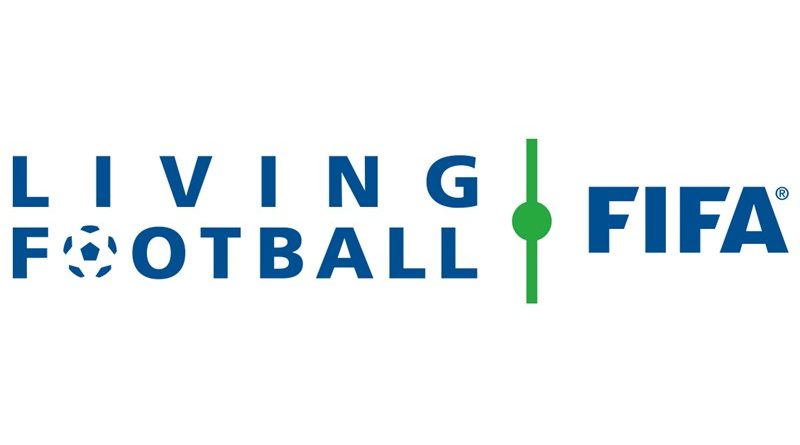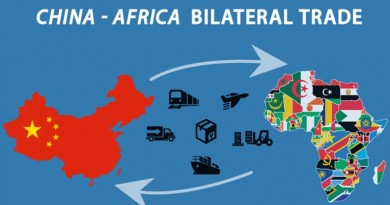FIFA Council approves calendars for international matches
The FIFA World Cup 2026 (https://www.FIFA.com) will feature a competition format of 12 groups of four; the FIFA World Cup 2026 final will take place on Sunday, July 19, 2026; a special task force on player welfare has been established; and additional transfer reforms have been unanimously approved.
The FIFA Council convened ahead of the 73rd FIFA Congress in Kigali, Rwanda, and made a number of significant decisions. In particular, the future of the men’s and women’s competitions were addressed, and the corresponding international match calendars were unanimously approved after extensive consultation.
Men’s International Match Calendar 2025-2030
The Men’s International Match Calendar for 2025 to 2030 is structured as follows:
- A nine-day, two-match window in March
- A nine-day, two-match window in June (including friendlies in preparation of final tournaments where appropriate)
- A 16-day, four-match window is available in late September or early October (to be introduced as of 2026, with two nine-day, two-match windows to be retained in September and October 2025)
- A nine-day, two-match window in November
The FIFA World Cup 2026 final will be played on Sunday, July 19, 2026, according to the new calendar. The mandatory release period will begin on May 25, 2026, following the conclusion of the final club match on May 24 (exemptions may be granted for club competition finals until May 30, 2026, subject to FIFA’s approval). The total number of rest, release, and tournament days, 56, is the same as it was during the 2010 FIFA World CupTM, 2014 FIFA World CupTM, and 2018 FIFA World CupTM. The comprehensive Men’s International Match Calendar 2025–2030 will be released soon.
The Women’s International Match Calendar for 2024-2025
The Women’s International Match Calendar 2024–2025 will include six international windows every year, according to the present calendar. To allow the confederations to deliver their unique competition qualification processes and to allow the member associations to play friendly matches, some of these windows will feature a variety of window kinds.
The Concacaf W Gold Cup, which will be played for the first time from February 20 to March 10, 2024, as well as the Women’s Olympic Football Tournament dates (25 July–10 August 2024), have been added to the schedule.
Also, the FIFA Council unanimously approved the creation of a task group specifically focused on player welfare to ensure the effective execution of player welfare principles including required rest intervals.
FIFA President Gianni Infantino stated, “FIFA promoted a genuinely global approach to the negotiations on the International Match Calendar, which addressed the viewpoints of all major stakeholders.
“Our core goal is to have clarity on this issue, to have meaningful football matches while safeguarding the players’ welfare, and to acknowledge that many regions need more competitive football,” the statement reads.
Format for the FIFA World Cup 2026 competition
The FIFA Council unanimously approved the proposed change to the FIFA World Cup 2026 competition format from 16 groups of three to 12 groups of four, with the top two and eight best third-placed teams moving on to a round of 32. This decision was made after a thorough review that took into account sporting integrity, player welfare, team travel, commercial and sporting attractiveness, as well as team and fan experience. The updated schedule reduces the possibility of collusion, guarantees that each team plays at least three games, and distributes rest periods evenly among the opposing teams.
FIFA Club World Cup 2025™ – key principles of access list
After the unanimous agreement of the slot distribution for the 32-team FIFA Club World CupTM, which will start being held in June 2025 every four years, the FIFA Council accepted the main access principles in order to guarantee the greatest quality possible based on sports standards.
The main tenets of access are as follows, using the four-year period of the seasons ending between 2021 and 2024 as a period of consideration:
- For confederations with more than four slots: entry for the winners of the confederation’s top club competition’s previous four iterations, plus additional teams chosen based on a club rating calculated during the same four-year period.
- Access for the winners of the confederation’s top club competition’s previous four iterations is available for confederations with four slots.
- For confederations with a single slot: entry for the club with the highest ranking among the winners of the confederation’s top club competition during a four-year period.
- For the host nation: access for the club holding this position will be decided later.
Other standards also apply:
If a club wins two or more iterations of the confederation’s top club competition between 2021 and 2024, a rating of clubs based on sports standards will be utilized to determine access.
There will be a limit of two clubs per country on the access list, although there will be an exception if more than two clubs from the same nation win the confederation’s top club competition over the four-year period.
Confederations and other interested parties will be consulted once more to define the club ranking’s calculating processes, which will be based on sports standards.
Yearly FIFA club competition
The FIFA Council unanimously approved the strategic concept of a yearly FIFA club competition beginning in 2024 because the current FIFA Club World CupTM will end after the 2023 edition and because the confederations have requested that the champions of their top club competitions play each other annually to foster competition. The winner of the UEFA Champions League and the winner of the intercontinental play-offs between the other confederations will square off in the championship match of this competition, which will include the winners of all confederations’ top club competitions. The timing and format details will be released soon.
Bidding regulations Approved for FIFA Women’s World Cup 2027
The FIFA Women’s World Cup 2027TM Bidding Regulations were unanimously approved by the FIFA Council in accordance with the decision made at its meeting on February 14, 2023, and will result in the most thorough bidding process in the tournament’s history before the host(s) are scheduled to be chosen by the FIFA Congress next year.
FIFA Statutes
The FIFA Council also voted to form an all-confederation working committee to evaluate the FIFA Statutes in depth and make recommendations to the FIFA Congress the following year. The prospect of expanding FIFA’s mandate to include the eFootball category as one of FIFA’s overarching goals will be taken into consideration during this assessment.
Transfer reform
As part of the third package of the transfer reform process, the FIFA Council unanimously adopted changes to the FIFA Rules on the Status and Transfer of Players (RSTP) regarding registration periods and the necessity of ensuring greater protection for football players without jobs. The FIFA Council also decided to order the FIFA administration to investigate additional legal options to safeguard female players’ well-being in accordance with the RSTP, particularly in the areas of adoption, abortion, menstrual health, multiple births, breastfeeding, and childcare.
Other decisions
The regulations in regard to the activities of the FIFA Talent Development Plan in which FIFA will invest USD 200 million from 2023 to 2026 were unanimously adopted. The FIFA Council approved the publishing of the FIFA World Cup Qatar 2022TM debrief report and received an update on the FIFA Women’s World Cup Australia & New Zealand 2023TM. The FIFA Council authorized the FIFA Beach Soccer World Cup Seychelles 2025TM slot allocation in addition to the FIFA Beach Soccer World Cup UAE 2023TM, which will be held from November 16 to 26, 2023. (AFC: 3; CAF: 2; Concacaf: 2; CONMEBOL: 3; OFC: 1; UEFA: 4; host country: 1).




